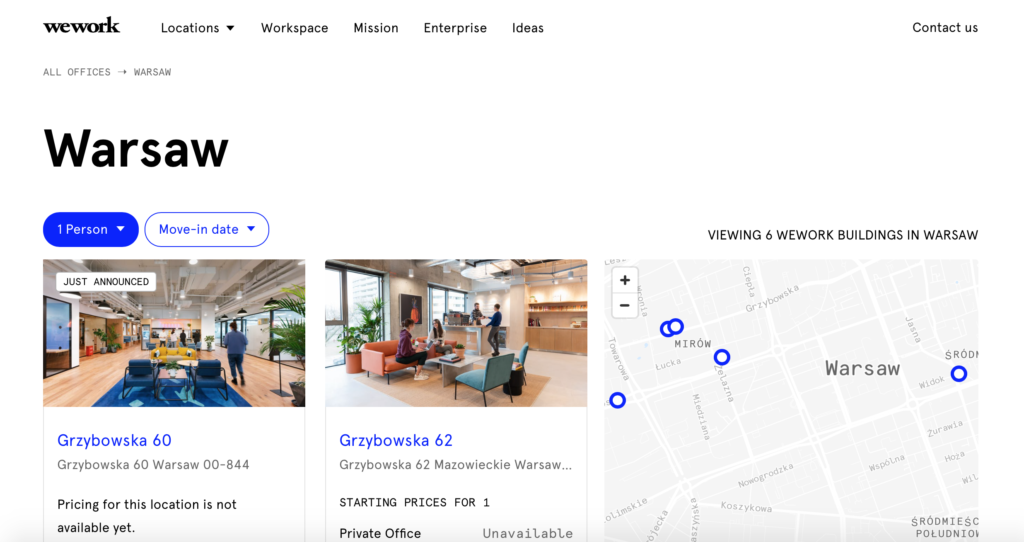AI in Real Estate - Will Artificial Intelligence Replace Agents?
It should be surprising that considering the current investments in PropTech, real estate has been slow to adopt innovation. But this...

Let’s look at what proptech products and services are and how they’re already changing our lives (because they are).
In general, proptech is the technology for real estate. It’s becoming another hot term in tech, along with its not-so-distant cousins’ fintech, edutech, HRtech, and all the other “techs”. In real-life terms, it’s a category of technology startups and companies that create solutions to make planning, managing, trading, and using real estate more efficient and easier at every stage of a building’s lifecycle.
Although proptech has been slower to catch on than fintech, the investment volumes have been steadily growing, hitting $12.9 billion in the first half of 2019, according to CREtech research, and are predicted to continue to rise.
Mostly, the office and retail sectors are already disrupted by technology (think sharing economy, home rental platforms, and coworking spaces). Proptech is transforming the real estate industry – both its residential and commercial side, pretty much in the same way Uber has transformed the taxi business and Airbnb – the lodging market. Companies turn to tech to catch up with the new reality and keep a competitive edge while still making profits.
Although proptech might still sometimes seem like a vague, underdefined term, and the definitions will vary, here’s what the landscape it fits into looks like today, according to a proptech company Immobilier2.0

Source: https://medium.com/@vincentlecamus/proptech-what-is-it-and-how-to-address-the-new-wave-of-real-estate-startups-ae9bb52fb128
The term can span both software and hardware. It can use 3D printing, data visualization, AI, AR/VR, blockchain – and whatever technology there is that could make buying, selling, renting, managing, and using properties easier.
What’s more, proptech doesn’t just introduce technology into the real estate industry. It also changes the long-used traditional business models to more efficient, cost-effective, and customer-friendly ones.
Using the latest tools and tech, proptech offers services and platforms for real estate professionals, property owners, and investors while also catering to the other end of the real estate spectrum – end customers and their homes.
In fact, according to research, more than 50% of proptech companies focus on sales and leasing, while only 16% and 12% provide solutions in construction and investment/financing, respectively.
Let’s look at some specific examples (to which proptech is definitely not limited.)

PropTech is a solution for professional services and smart home technology – a way of making life easier for everyone.
This is probably the most costly and time-consuming part of the property lifecycle – which explains why it’s so challenging to employ proptech at this stage.
Services like PlanRadar have essentially expanded project management software platforms dedicated to the construction industry. They help with making plans, creating and keeping documentation, and communicating throughout construction projects.
Other tools in this category are building information modeling platforms (BIM), cost estimation tools, and modular construction tools used for buildings made from pre-produced modules that are put together on-site, making the process more efficient eco-friendly.

PlanRadar offers easy ticketing, direct communication, and digital plans. | Source: https://www.planradar.com/
Many of the proptech landscape is property portals and marketplaces many of us are already used to and don’t even consider “proptech” (or any tech). An important aspect of how these platforms work is that they have been ultimately changing how we buy, sell, and rent a property.
In this category, you’ll find platforms like Rentberry – which connects tenants and landlords and makes price negotiation easier, or Reali – a real estate platform that employs real estate agents working on salary instead of commissions, which allows for a completely different buying experience.
Platforms like Zillow and other digital marketing tools, on the other hand, help automate the process of advertising property listings and reaching the right audiences with online display ads.
Another proptech application is virtual home tours, far from a novelty but are becoming far more accessible these days. They use 3D modeling to allow the buyer to take a virtual walk around the property they’re thinking to buy.
While not so long ago this was cutting-edge technology, companies like Matterport are making it available to virtually (sic!) anyone. The service offers cloud subscription plans for 3D cameras to capture, create, and display 3D models online for others to view. Which also saves landlords and property owners tons of time they’d normally be spending on property viewings.

You can integrate your brand throughout Zillow Group’s portfolio of real estate sites | Source: https://www.zillowgroupmedia.com/programmatic/
Blockchain technology has changed a lot in how people invest, and that includes real estate. In this category, at the intersection of proptech and fintech, you’ll find platforms like Atlant.io. It uses real estate tokens representing shares in individual real estate assets to invest in and trading with property easier and more transparently.
In this category, you’ll also find some other concepts already popular in fintech, like crowdfunding and peer-to-peer lending, property valuation tools based on AVM, and mortgage brokers.
An interesting concept in market valuation is, for example, Zumbly, a platform that assesses your property investment plans by generating a real-time score to help you determine how much you could earn by renting out your property as an Airbnb, based on over 500,000 calculations.

Through Zumbly, you can find a home that would be a solid investment. | Source: https://zumbly.com
In the age of remote work and startups, coworking is becoming the alternative to corporate office rentals. The pioneer in this category is WeWork – an American leader in providing shared and private working spaces for tech startups around the world. Their online platform lets you specify the desired parameters and locations. What’s important, it’s not just focused on providing office desks but on creating an environment where entrepreneurs can grow and expand their businesses.
These kinds of services already got their own category name – SpaaS (Space as a Service). Today, tenants are offered not just space but everything else they need to use effectively.
To help people in coworking spaces organize their work and increase productivity and comfort, companies like Spaceos provide the tech and tools to enhance the workplace. Their mobile and web app combines features like community, booking, support, payments, food and beverage orders, and various services in a cloud-based SaaS platform.

WeWork locations in Warsaw | Source: https://www.wework.com/
According to Statista’s research, smart building technologies are among the most disruptive innovations that proptech is responsible for. Complex building management systems (BMS) already control electrical systems in many public buildings we visit every day, automating things like lightning, heating, ventilation, security, and data collection.
Sophisticated services like Gooee are largely based on IoT technology, and their applications are endless – from improving energy efficiency to improving the well-being of employees and their productivity.

Gooee benefits are energy savings, space optimization, occupant wellbeing, and productivity. | Source: https://gooee.com
Proptech is also behind one of the most talked-about consumer-facing technologies, including smart speakers and voice-activated home assistants.
By far, one of the most popular is the Amazon Echo Family (yes, it’s proptech, too!) – Bluetooth speakers powered by Alexa that can be configured to control most of the devices inside our homes.
In fact, smart home technologies are becoming a must for the younger generation. In a recent survey by ButterflyMX, 86% said they were willing to pay more if their apartment had smart technologies. This is, in turn, putting more pressure on property managers to raise their standards if they want to attract and retain millennial renters.
We’re only at the beginning of the proptech revolution, and future proptech trends are a topic for a whole other long article. Some predict proptech will replace people in the industry – like real estate agents – but I’m sure we all know that we need smart people working behind it and operating it to benefit from the smart tech.
What we’re likely to see, though, is tech-supporting building communities and co-living – another strong trend after co-working and an antidote to urban loneliness (plus the answer to the fact that young people in major world cities can’t afford to buy their own homes).
Facing an imminent ecological disaster, a leading trend will most likely be using tech to employ eco-friendly solutions in the real estate industry, reducing its carbon footprint.
PropTech means using modern technologies in the real estate industry. PropTech is not a separate industry, but a new approach to process and service management in the real estate sector.
PropTech is all applications, systems or services that allow for more thanks to the involvement of new technologies such as machine learning. An example of Proptech is the Automated Valuation Model or integrated building management, or smart house.
It's about the value of the real estate market. The real estate industry has great investment capacity and huge demand. PropTech solutions often allow you to do things better, faster, more efficiently and deliver new opportunities to your customers.

It should be surprising that considering the current investments in PropTech, real estate has been slow to adopt innovation. But this...
The real estate industry is one of the oldest and most prominent ones still on the market, but it’s also...
Do you know why start-ups fail? Well, according to research by CBInsights, the most common reason for failure is ‘no...